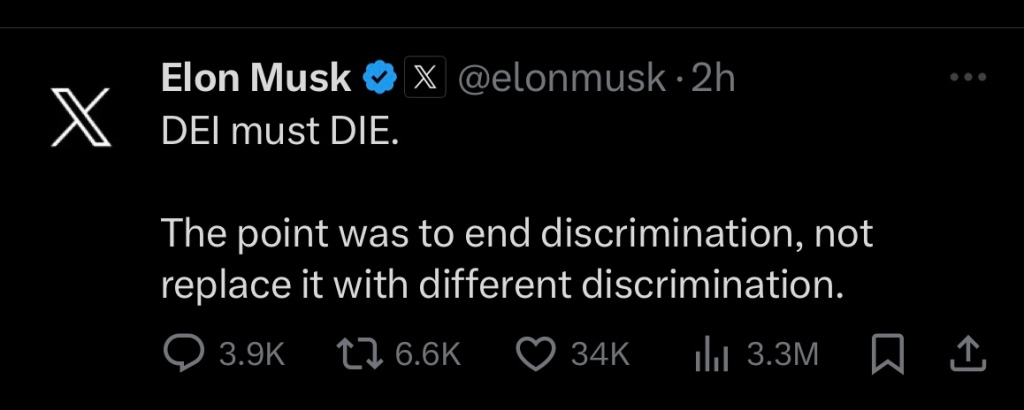
I won’t bury the lede on this post. I will no longer be promoting Super Library Marketing on Twitter/X. And I hope that you and your library will stop promotions there too.
I’ve been debating this move for a while now. I am keenly aware of the challenges libraries face when reaching their community. Libraries need every single free resource at their disposal to effectively promote their library.
But you don’t need Twitter/X. Not anymore.
The number of libraries that use Twitter/X for promotion fell an astounding 17 percentage points this year, according to the 2023 Super Library Marketing Survey.
Only 38 percent of libraries are currently actively marketing on Twitter/X. I hope this post convinces them to stop.
The platform’s promotional effectiveness continues to plummet. It sincerely is no longer a beneficial use of your time.
And the man who runs it has made changes that allow hate speech, trolling, and abusive behavior on the platform. He’s reinstated numerous banned accounts and freely allows posts from climate deniers, anti-vaxxers, as well as antisemitic dog whistles.
In fact, on Friday, December 15, as I was writing this piece, he published this Tweet.

I don’t want to support that, and I don’t think your library should either.
Statistics to support a Twitter/X exit
If you want to see numbers, here are the latest statistics from What’s the Big Data.
- Twitter is the 7th most popular social media platform worldwide and has far fewer users worldwide than any other social network we’ve covered in the recent Social Media Guide for Libraries.
- 10 percent of Twitter users account for about 92 percent of the Tweets shared on the platform. Most users aren’t active. They visit to consume content rather than interact with it.
- Only 33 percent of Twitter users come to the platform to follow brands and companies.
- Elon Musk, Twitter’s current owner, has imposed limits on the number of Tweets and direct messages your library can send in a day, as well as the number of accounts your library can follow.
Other library marketing experts agree: It’s time to leave Twitter/X.
Ned Potter splits his time between being Faculty Engagement Manager: Community + UX at the University of York and running freelance workshops on library marketing and social media. He’s worked in the academic library world since the mid-2000s. He was featured on this blog in 2022.
Ned recently published a piece laying out several reasons he believes libraries should leave Twitter. He echoed my concerns, including hate speech, misinformation, and Musk’s behavior.
Ned has worked with libraries across the world and says he does have mixed feelings about leaving Twitter/X.
“I have found the librarian community to be fantastically open, generous, and curious,” said Ned. “I really value my networks online too, which is why I’m so sad to have been driven to leave Twitter!”
Laura Solomon, MCIW, MLS is the Library Services Manager for the Ohio Public Library Information Network and a W3C-certified front-end web developer. She’s a 2010 Library Journal Mover & Shaker. She has written several books about web design, social media, and content marketing for libraries, and speaks internationally.
Laura also wrote a recent post calling for libraries to leave Twitter. Her reasons include the platform’s focus on monetization and the fact that so many people have left the platform. Laura also believes libraries’ public perception may be damaged if they continue to post on Twitter/X.
She admits this is going to be a difficult move for some organizations.
“I have heard from some that they plan to address their libraries’ administration about it,” said Laura. “I suspect it will be an uphill climb.”
Ned says he can understand that pushback. But he has some good advice for staff members who want to make the case to their supervisors.
“I’d point to statistics,” advises Ned. “You absolutely see the reduced numbers of likes, impressions, and link clicks happening on the platform. So we’re not achieving the things we’re on social media to achieve, like driving behavior and influencing perceptions of the library.”
“I’d also point to the potential reputational harm of being on a platform run by someone so seemingly intent on causing harm and being so openly hostile to almost everyone.”
“But I’d also focus on the positive – leaving social media platforms can be incredibly liberating. If it frees up your creative energies to be spent on, for example, Instagram instead, that account is going to benefit hugely from that! You’ll see engagement levels skyrocket, and your impact increase.”
Laura says library staff who want to leave Twitter should share articles with their supervisors about how companies are reacting to the chaos and actions of Twitter and Elon Musk.
“Provide data about how much referral traffic the library (probably isn’t) getting at this point,” adds Laura. “Remind admins that they really don’t want their libraries associated with an international disinformation mechanism. Twitter isn’t what it was a year ago.”
What to do if your library decides to leave Twitter/X
If your library decides to stop promoting on Twitter, don’t delete your account. Things may change in the future, and you don’t want someone else claiming your handle. Instead:
- Pin a post to the top of your profile, letting your followers know that you no longer will be posting on the platform.
- Give Twitter/X users an alternative way to find information about the library (ideally, a link to your email opt-in page!).
- Remove the Twitter logo from your emails and website.
I’m curious: what are your library’s thoughts about Twitter? Let me know in the comments.
PS Want more help?
It’s Okay To Take A Break From Social Media! Here Are the Benefits of a Pause for Your Library
Subscribe to this blog and you’ll receive an email whenever I post. To do that, enter your email address and click on the “Follow” button in the lower left-hand corner of the page. You can also follow me on the following social media platforms:
December 18, 2023 at 4:08 pm
This has been a concern for us (public library). Our followers and stats are growing (link clicks, likes, etc.) but we’ve definitely noticed fewer authors on the platform when we promote our collections.
LikeLike
December 21, 2023 at 12:44 pm
Angela – thank you for the discussion about leaving Twitter. We are going to leave and are taking your advice and not deleting our account, but pinning a post at the top of the page that we are no longer posting to the platform. It will be interesting to see if we get any pushback or comments. I’ll be sure to let you know.
LikeLike